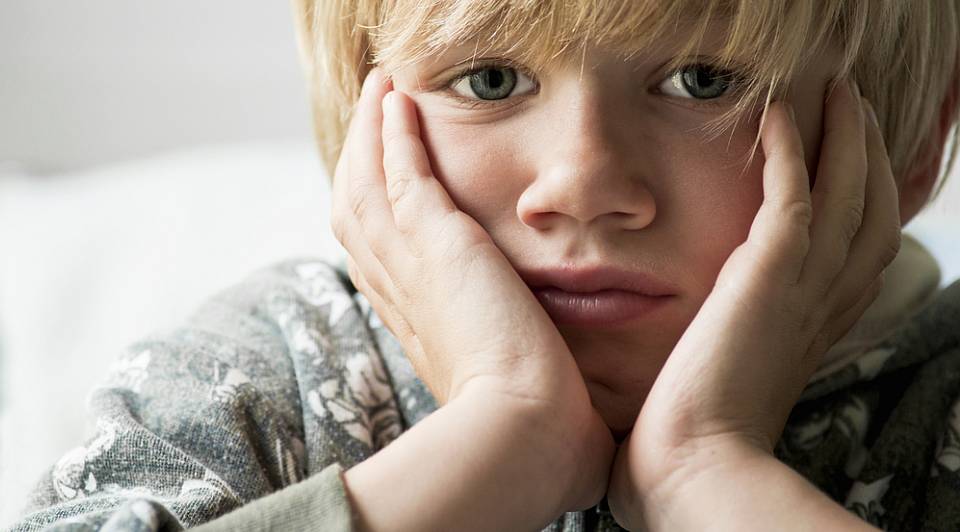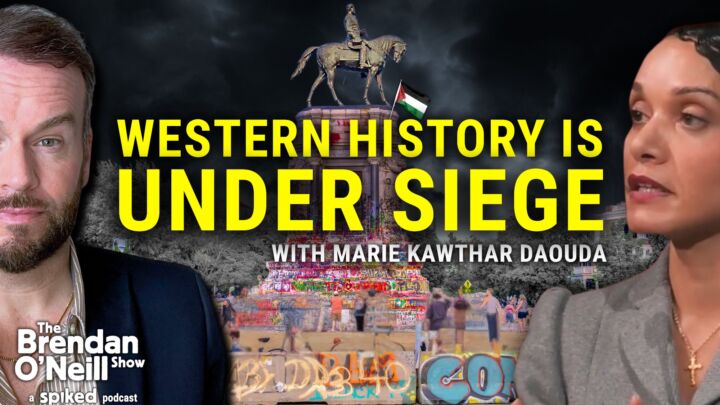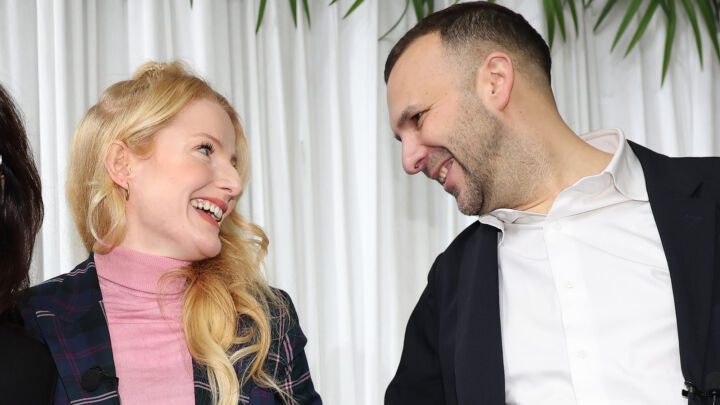What PIE and the NSPCC have in common
Both believe in saving children from their parents.

Want unlimited, ad-free access? Become a spiked supporter.
Paedophiles are in the news in Britain again (not that they ever really left it). This time the nation’s concern is focused on the activities of the Paedophile Information Exchange (PIE) in the 1970s. All too predictably, the media are more interested in scandal-mongering than in asking serious questions about the motives and ethos of PIE. Yes, PIE was in the business of promoting the ‘virtues’ of paedophilia. And, yes, its rhetoric was dominated by a self-serving and self-deluding fantasy that sought to frame the predatory appetites of its members as an expression of a genuine ‘love’ of children. However, the uncomfortable fact is that PIE was part of a wider movement that assumed to speak on behalf of the child. It was to this child-saving movement that PIE’s approach to childhood bore an affinity.
The nineteenth-century child-savers movement was driven by a powerful sense of humanitarianism, justice and altruism. It sought to protect children from the many inequities confronting them. Unfortunately, significant parts of this movement, including the National Society for the Prevention of Cruelty to Children (NSPCC), sometimes expanded their remit from protecting children to claiming moral authority over childhood itself. As a result, child-saving entrepreneurs often started to perceive their main aim in terms of saving children from their parents. And this has been the main intellectual and political legacy of the child-saving movement: it popularised the assumption that the interests of parents and children are either potentially or actually contradictory.
Such sentiments are rarely expressed explicitly, of course. But they are implied whenever child-savers speak of, or demand, action on behalf of the right or the interest of the child. This is a nifty move on the part of the child-saver. The assumption that what is in the interest of the child is different to the interests of the parent creates a conflict that can only be mediated by those possessing the moral and expert authority to pronounce on the dispute; namely, the child-saver.
Up to the 1960s, this tendency to counterpose the interests of children to those of their parents and family was relatively restrained. It was still widely assumed that parents did the right thing for their offspring. The focus of child protection at this point was on a minority of rogue working-class mothers and fathers, and sometimes on parents from immigrant communities. But during the 1960s and 1970s, things changed: the cause of the child assumed a new and, as it turned out, politically destructive form. This, then, was the moment when small groups of adults invented the idea of ‘children’s liberation’. Moreover, the 1970s was also the decade when the idea of children’s rights was articulated and gained cultural influence.
Some commentators on the PIE scandal have suggested the tolerance towards PIE from the National Council of Civil Liberties (NCCL), and other bodies and professionals, can be explained by the influence of post-Sixties radical liberationist politics. The social scientist Liz Kelly pointed out that: ‘These were the days of gay liberation, women’s liberation and, yes, children’s liberation. “Children’s rights” was an oxymoron in those times, which also created a space in which their “right” to sexuality could be articulated… So PIE literature at the time focused on this, and their status as a sexual minority, which in some peoples’ eyes was legitimated through the alliance with [the Gay Liberation Front (GLF)].’
Kelly is right to point out the ease with which PIE could slot into the confused sexual-liberationist agenda of the 1970s. But PIE was not simply the radical wing of the GLF. PIE also expressed newly invented ideas about the need to liberate children. Like other supporters of this misguided ideal, the question of whom children needed liberating from was rarely made explicit. Not that it had to be made explicit, since the only agency that children could be liberated from was that of their parents and family.
Until the 1970s, anti-parent propaganda tended to be relatively subdued. But through the liberationist discourse of the time, child-savers started to pathologise family life. And PIE itself emphasised the cause of children’s autonomy, particularly that of young gay kids. As one PIE activist warned: ‘[W]e can be certain of a clampdown on the autonomous activities of children inside the family in all spheres of life.’
So PIE was not simply in the business of political liberation – it also positioned itself as yet another adult voice speaking on behalf of the right of the child. Whether some of its supporters, like Peter Righton – the former director of education at the National Institute of Social Work and a consultant for the National Children’s Bureau – were attracted to this profession solely in order to gain access to children or because of an idea of child-saving is a matter of conjecture. Still, it seems clear that PIE and its sympathisers did not simply express a form of liberationist identity politics – they also adopted the ideas of the child-savers.
No doubt PIE was entirely opportunistic when choosing which arguments it would use to justify its predatory obsession with children. But that doesn’t disguise the fact that the arguments it voiced about children’s liberation were consistent with the emerging narrative of children’s rights.
The key texts advocating children’s rights were Richard Farson’s Birthrights (1974) and John Holt’s Escape From Childhood: The Needs And Rights Of Children (1974). The principal aim of these two books was to eradicate the moral distinction between children and adults. ‘I propose that the rights, privileges, duties, and responsibilities of adult citizens be made available to any young person of whatever age, who wants to make use of them’, argued Holt. He added that children should have ‘the right to do’ what ‘any adult may legally do’. Likewise, Farson claimed that children ought to be able to express their sexuality in the same way as adults, provided both parties consent. Farson wrote that children should be able to ‘conduct their sexual lives with no more restrictions than adults’.
The arguments used to erode any distinction between child and adult sexuality were opportunistically embraced by PIE in its campaign against laws that ‘deny children their sexual life and sexual contact with elders’. In other words, the right of paedophiles to have access to children was recast in the language of protecting the freedom and autonomy of children.
Many of those involved in the children’s liberation and rights movement would have been repelled by PIE’s self-serving version of its arguments. They should not be held to account for PIE’s activities and behaviour. However, what they can be legitimately criticised for is their arrogant assumption that they had the moral authority to speak on behalf of the child. John Holt, for instance, was unambiguous about his self-appointed role as childhood’s tribune: ‘I make myself, uninvited, a spokesman for children in this matter because they have so few other spokesmen and are in so poor a position to speak for themselves.’ This statement clearly exposes the meaning of children’s rights. These are not rights demanded by children; they are rights invented by adults who claim to best understand the real needs of children. Just as children do not wake up one morning and demand liberation so that they can have sex with a kind member of PIE, so children do not spontaneously dream up the fantasy that they must have the same rights as their parents or grandparents. This is all about an adult initiative carried out not by, but in the name of, children.
In any case, the term ‘children’s rights’ is an irrational concept. A right implies the capacity of a moral agent to exercise it. Children, especially young ones, are not able to exercise rights, a fact that even the advocates of their liberation acknowledge. Hence, these are rights exercised on children’s behalf. In reality, a child’s right turns out to be the right of a child-saver, or a child-protection officer, or the state to decide what is in the best interest of the child.
The unthinking and uncritical embrace of children’s rights since the 1970s has had a corrosive impact on community life. The promotion and cultural glorification of this right helped to de-legitimise the authority of the mother and father. ‘Regrettably, a leading characteristic of the children’s rights movement is the propensity to separate children’s interest from their parents’’, wrote Martin Guggenheim in his compelling study, What’s Wrong With Children’s Rights (1). Children’s rights do not empower children; rather, they disempower parents. They provide an ideological rationale for perceiving parent-child relations as fundamentally contradictory.
Outwardly, the worldview of children’s liberation and that of the contemporary child-protection industry appear opposed to one another. Liberationists and PIE want to erode the distinction between childhood and adulthood, while the current child-saving lobby wants to keep adults out of the lives of children. These are temperamentally very different attitudes toward childhood. But what they share is a suspicion of parents and families. And what therefore binds these two different approaches is the assumption that the advocates of these approaches have the moral authority to decide what is in the best interests of other people’s children.
What’s ironic about the current furore surrounding PIE is the failure to recognise that the corrosive idea of children needing protection from their parents, and its corollary, the devaluation of parental authority, is part of the legacy of the liberationist theology of the 1970s. Just remember: it is not only paedophiles who now possess an unhealthy and prurient interest in our children.
Frank Furedi is the author of Paranoid Parenting, published by Continuum. (Order this book from Amazon (UK).) His latest book is First World War: Still No End in Sight, published by Bloomsbury. (Order this book from Amazon (UK).)
£1 a month for 3 months
You’ve hit your monthly free article limit.
Support spiked and get unlimited access.
Support spiked – £1 a month for 3 months
spiked is funded by readers like you. Only 0.1% of regular readers currently support us. If just 1% did, we could grow our team and step up the fight for free speech and democracy.
Become a spiked supporter and enjoy unlimited, ad-free access, bonus content and exclusive events – while helping to keep independent journalism alive.
———————————————————————————————————————————–
Exclusive January offer: join today for £1 a month for 3 months. Then £5 a month, cancel anytime.
———————————————————————————————————————————–
Monthly support makes the biggest difference. Thank you.










Comments
Want to join the conversation?
Only spiked supporters and patrons, who donate regularly to us, can comment on our articles.